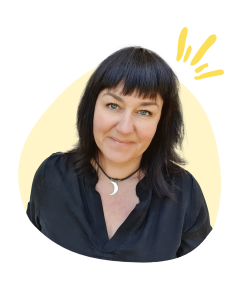“Why do I feel so different from everyone else?”
That question follows many autistic women throughout their lives, long before they know the answer. The reality is that most of us don’t realise we’re autistic until decades into adulthood, after years of self-doubt, confusion, and a relentless effort to fit in. A late diagnosis isn’t just a label—it’s a key that unlocks an entirely new understanding of ourselves, our past, and our place in the world.
For many women, the experience of receiving an autism diagnosis is a rollercoaster of emotions: relief, validation, grief, and even a sense of liberation. But it also sparks an intense period of introspection, where everything we thought we knew about ourselves is suddenly up for reevaluation.
Here’s how a late autism diagnosis (or equally valid self-realisation) shapes identity—and why it can be one of the most transformative experiences of an autistic woman’s life.
Challenging the Internal Narrative: “What’s Wrong With Me?”
Before diagnosis, many autistic women internalise the idea that they are somehow wrong. The world has told them, repeatedly and in a hundred different ways, that they are too much or not enough. Too intense, too quiet, too direct, too sensitive. Not sociable enough, not interested in the right things, not good at “normal” life.
Without the framework of autism, these struggles often feel like personal failures. Why does everyone else seem to instinctively know how to behave, while we’re stuck overanalysing every social interaction? Why does small talk feel like performing a scene in a play we don’t have the script for? Why do our brains refuse to cooperate with what society expects?
A diagnosis flips that narrative. Suddenly, we’re not broken—we’re neurodivergent. Those struggles weren’t our fault. They weren’t moral failings, laziness, or “being difficult”—they were the reality of living in a world that wasn’t designed for us.
Understanding this can be both a relief and a challenge. It requires unlearning a lifetime of self-criticism and replacing it with self-compassion. It’s not easy, but it has to be done.
Unmasking: “Who Am I, Really?”
Many autistic women become expert chameleons. We study people, mimic their behaviours, and craft personas that help us blend in. We suppress our natural instincts—stimming, infodumping, avoiding eye contact—to appear neurotypical.
This works, to a point. But it comes at a cost. The constant effort to mask autistic traits leads to exhaustion, burnout, and a disconnect from our true selves.
After diagnosis, many women go through a process of unmasking—slowly stripping away the persona they’ve built and learning to exist as their authentic selves. This can be terrifying. Years, sometimes decades, of social conditioning don’t disappear overnight. What if people don’t like the real us? What if we don’t even know who the real us is?
Unmasking isn’t about suddenly dropping all social adaptations and declaring, “Take me as I am!” It’s about choice. It’s about recognising when we’re masking for safety or comfort and when we’re doing it out of fear or habit. It’s about allowing ourselves to stim, to communicate in ways that feel natural, to express our passions without shame.
It’s also about acknowledging that some environments—workplaces, social situations—aren’t always safe places to fully unmask. And that’s OK. The goal isn’t all-or-nothing authenticity, but balance.
Reframing Past Relationships: Seeing the Patterns
A late diagnosis often casts past relationships in a new light. Many autistic women look back on childhood friendships, workplace dynamics, and even family relationships and realise that the misunderstandings, rejections, and social struggles were the result of being autistic in a world that didn’t recognise it.
Those “difficult” relationships? Maybe they were built on miscommunication, on neurotypical expectations we didn’t even know we were failing to meet. That childhood bullying? Maybe it wasn’t because we were unlikable—maybe they misread our way of engaging and reacted with rejection. The workplace struggles? Maybe they weren’t because we were “too sensitive” or “not a team player”—maybe it was sensory overwhelm, unclear expectations, and social exhaustion.
This realisation can be freeing, but it can also be painful. It can mean grieving lost friendships, acknowledging years of emotional labour spent trying to decode neurotypical behaviour, and sometimes even choosing to distance ourselves from relationships that were never truly supportive.
Finding Community: “Others Feel This Way Too?”
For many late-diagnosed autistic women, discovering the autistic community is life-changing. After years of feeling like the odd one out, suddenly we find people who just… get it.
The relief of hearing someone else describe your experiences, of realising that your “quirks” aren’t quirks at all, but shared autistic traits, is indescribable. It’s like finding out you’ve been speaking a secret language all your life and finally hearing others speak it too.
Online spaces, local support groups, and neurodivergent-led initiatives provide validation, support, and practical advice. They offer a space where autistic traits aren’t just tolerated but celebrated. Special interests aren’t “weird obsessions”—they’re passions. Stimming isn’t “unusual behaviour”—it’s self-regulation. Direct communication isn’t “rude”—it’s clarity.
Just as important is finding professionals, such as counsellors or therapists, who are also autistic. Working with someone who truly understands, who speaks your language and instinctively grasps your needs, can be transformative. There’s no need to explain why eye contact feels unnatural, why small talk is exhausting, or why masking has taken its toll. An autistic professional recognises these struggles without judgment, offering guidance that actually aligns with your lived experience.
Community helps undo the damage of a lifetime of feeling out of place. It replaces isolation with belonging.
Advocacy and Self-Empowerment: Rewriting the Narrative
A late diagnosis often sparks a drive to educate, to advocate, and to challenge outdated stereotypes. Many autistic women become vocal about their experiences, determined to prevent others from going through the same struggles they did.
We push for better diagnostic criteria that recognise the female autism phenotype. We advocate for workplaces that accommodate neurodivergence rather than forcing us to conform. We challenge the assumption that autism looks the same in everyone, that it’s just “social awkwardness” or “a childhood condition”.
For many of us, this advocacy isn’t just about helping others—it’s about reclaiming our own narratives. It’s about saying, I am not broken. I am not less. I am autistic, and I am enough.
Conclusion: The Journey of Self-Acceptance
A late autism diagnosis doesn’t instantly erase decades of struggle. It doesn’t suddenly make the world more accommodating. But it does offer something invaluable: understanding.
It gives us the language to describe our experiences, the framework to make sense of our past, and the permission to exist as we truly are. It allows us to stop fighting against ourselves and start working with our neurology.
And that? That’s life-changing.
For those still questioning, still wondering, still scouring the internet at 2 a.m. asking, Am I autistic?—keep going. Keep exploring. Keep learning. And know this: if you are autistic, if this resonates with you, you are not alone. You never were. You just didn’t have the words for it yet.






















